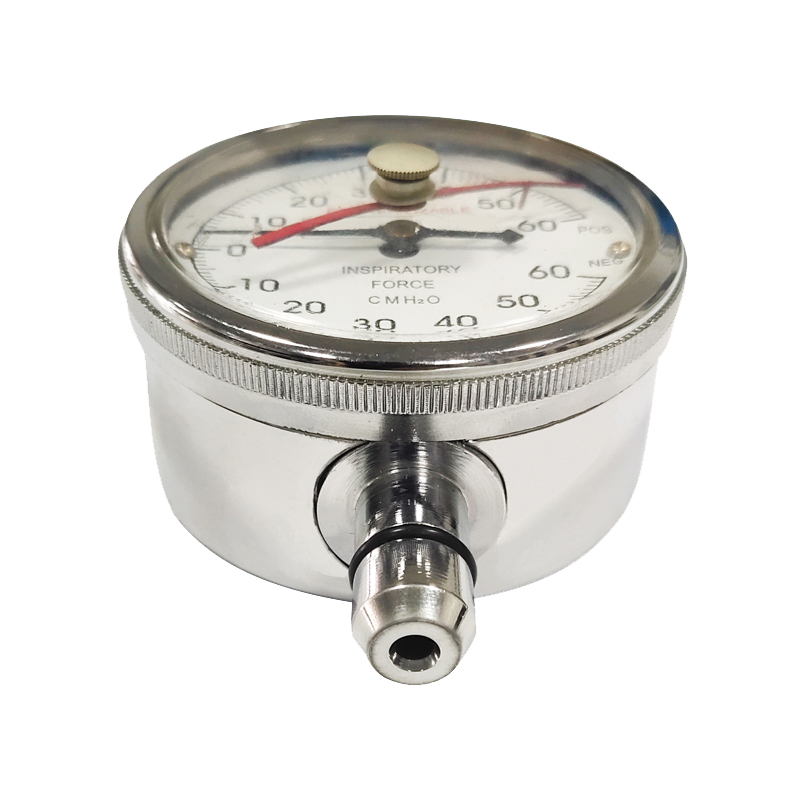
Dec . 11, 2024 09:23 Back to list
Understanding Piston-Style Differential Pressure Gauges and Their Applications in Various Industries
Understanding Piston-Style Differential Pressure Gauges
Differential pressure gauges play a pivotal role in various industrial applications, providing critical data for the management and control of processes. Among the different types available, piston-style differential pressure gauges stand out due to their unique design and operational capabilities. This article delves into the functionality, advantages, applications, and maintenance of these instruments.
What is a Piston-Style Differential Pressure Gauge?
A piston-style differential pressure gauge is a measuring instrument that uses a piston mechanism to gauge the pressure difference between two points within a system. The gauge primarily consists of a sealed body containing two pressure inlets, a piston, and a calibrated scale. When pressure is applied to the two sides of the piston, the difference in pressure causes the piston to move. This movement is translated into a readable measurement on a dial or display, indicating the differential pressure.
How It Works
The working principle of a piston-style differential pressure gauge is based on the balance of forces. The piston is positioned between two chambers, each connected to a different pressure source. As fluid flows into the gauge, the pressure in each chamber exerts a force on the piston. The difference in these forces causes the piston to shift towards the side with the lower pressure, and this displacement directly correlates to the differential pressure being measured. The movement is then indicated on the gauge’s scale, giving operators vital information about the system's performance.
Advantages of Piston-Style Differential Pressure Gauges
1. High Accuracy Piston-style gauges are known for their high accuracy in measuring small pressure changes, making them ideal for precise applications.
2. Robust Design The mechanical design of these gauges is robust, allowing them to withstand harsh environmental conditions, including high temperatures and corrosive substances.
3. Low Maintenance Compared to electronic measuring devices, piston-style gauges require less maintenance. Their mechanical components are less susceptible to failure due to electrical issues or voltage fluctuations.
piston-style differential pressure gauges

5. Simplicity of Use With minimal setup and straightforward reading scales, piston-style gauges are easy to use. Operators can instantly interpret the measurements without needing specialized training or knowledge.
Applications of Piston-Style Differential Pressure Gauges
Piston-style differential pressure gauges find applications in numerous fields
- HVAC In heating, ventilation, and air conditioning systems, these gauges help monitor air flow and ensure systems operate efficiently. - Filtration Monitoring They are commonly used in filter systems to determine when filters need replacing by measuring the pressure drop across them. - Chemical Processing In volatile environments where accuracy is paramount, piston-style gauges provide reliable data for controlling chemical processes. - Water Treatment These gauges assist in monitoring pressure differentials in water treatment plants, ensuring safe and efficient operation.
Maintenance and Care
Maintaining piston-style differential pressure gauges is generally straightforward but essential for longevity and accuracy
- Regular Calibration Periodic calibration against known standards ensures that measurements remain accurate over time. - Visual Inspection Regularly checking for signs of wear, corrosion, or damage can prevent failures in measurement. - Cleaning Depending on the application, buildup of contaminants can occur. It's important to clean the gauge to ensure continued accuracy in readings.
Conclusion
Piston-style differential pressure gauges are indispensable tools in various industrial applications. Their ability to provide accurate, reliable measurements with minimal maintenance makes them a preferred choice across sectors. As industries continue to evolve and demand precision, these gauges will remain crucial in monitoring and controlling processes effectively. By understanding their functionality and maintaining them properly, operators can ensure optimal performance and longevity in their measuring systems.
-
High-Quality Pressure Gauge on Fire Extinguisher - Reliable Water Fire Extinguisher Pressure Gauge Suppliers & Exporters
NewsJul.08,2025
-
High-Quality Water Pressure Differential and Gauge Kit Reliable Manufacturers & Competitive Quotes
NewsJul.08,2025
-
High-Precision Digital Diaphragm Pressure Gauge – Reliable Manufacturer & Competitive Quotes
NewsJul.07,2025
-
Wholesale Diaphragm Pressure Gauge Supplier - Premium Quality & Competitive Price
NewsJul.07,2025
-
Digital Diaphragm Pressure Gauge Reliable & Precise Measurement Top Manufacturers Quotes
NewsJul.06,2025
-
High Accuracy Piston Type Differential Pressure Gauge - Reliable Manufacturers & Competitive Quotes
NewsJul.06,2025
